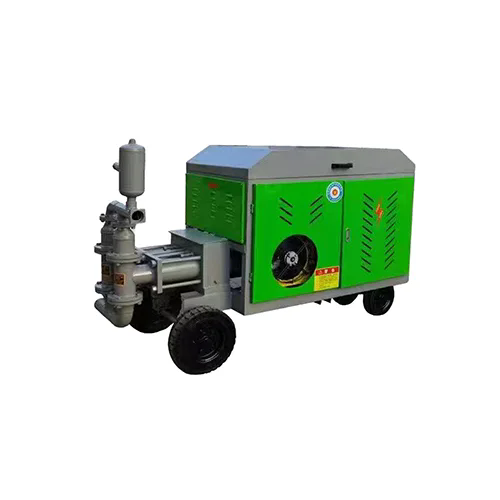Mortar Pump: A Smart Solution for Efficient Construction
2025-05-29
In the modern construction industry, efficiency, precision, and labor-saving technologies are in high demand. Among the many essential tools used on building sites, the mortar pump stands out as a powerful solution for transporting and applying mortar quickly and evenly. Designed for pumping cement-based mixtures, mortar pumps are widely used in masonry, plastering, and grouting applications.

What Is a Mortar Pump?
A mortar pump is a machine that transfers pre-mixed mortar or plaster to a designated location using pressure. It is often used to pump mortar through hoses to higher floors or hard-to-reach places, minimizing manual labor and speeding up construction timelines.
Key Features
1. Strong Pumping Capacity
Capable of handling various mortar consistencies—including sand-cement mortar, refractory mortar, and gypsum-based plaster.
2. High Efficiency
Compared to manual methods, a mortar pump dramatically increases the speed and uniformity of application.
3. Compact and Mobile Design
Most models are compact enough for urban sites and mobile for easy relocation.
4. Variable Flow Rates
Adjustable pumping speeds and pressure settings suit different application needs.
5. Durable Construction
Made from wear-resistant materials to handle rough mixtures and operate in tough environments.
Common Applications
Wall Plastering
Uniformly applies mortar or plaster across walls and ceilings with minimal effort.
Masonry Work
Delivers mortar to bricklayers efficiently, especially on high-rise buildings.
Tiling and Flooring
Used for pumping bonding agents or mortar for floor screeding.
Repair and Restoration
Ideal for injecting grout into cracks or restoring old masonry structures.
Benefits of Using a Mortar Pump
Reduces Labor Costs
Minimizes the number of workers needed for mortar mixing and transport.
Improves Safety
Limits heavy lifting and scaffolding work, reducing the risk of injuries.
Enhances Work Quality
Ensures consistent material application, leading to stronger and neater finishes.
Saves Time
Increases productivity on construction sites, helping projects finish on schedule.
Types of Mortar Pumps
1. Piston Mortar Pump
Known for high pressure and longer pumping distance—suitable for large-scale work.
2. Screw (Rotor-Stator) Mortar Pump
Popular for plastering and smooth finishes due to its continuous and even flow.
3. Pneumatic Mortar Pump
Uses compressed air to move the material—ideal for lightweight mortar or special projects.
Conclusion
The mortar pump has become an indispensable piece of equipment in the construction industry. It enhances the speed, accuracy, and quality of mortar application while reducing physical strain on workers. Whether for small residential jobs or large commercial projects, using a mortar pump leads to better construction outcomes and increased efficiency on-site.


